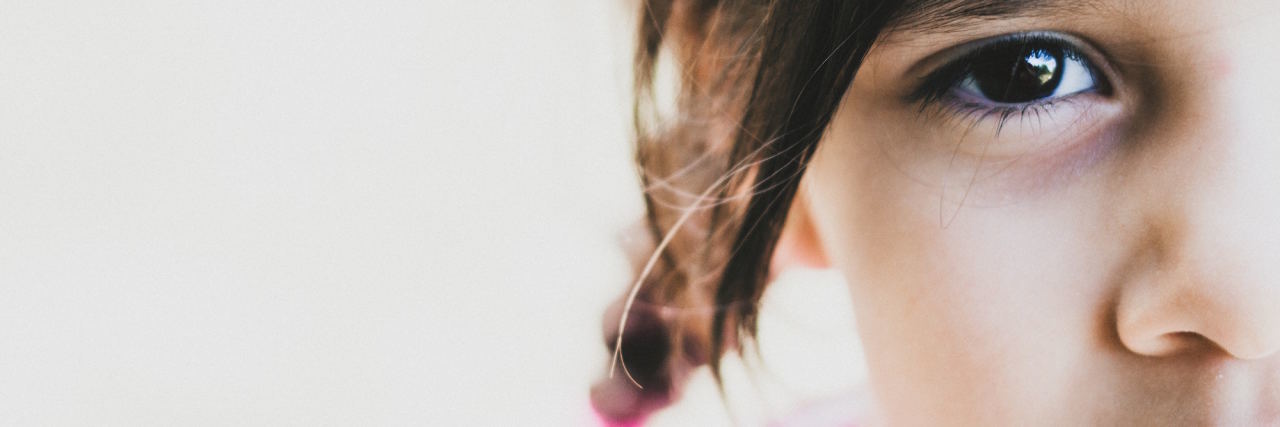Having a mental illness since early childhood makes me see it in a different way. Because the thing is, I didn’t see it as an illness, I didn’t have a name for it. I didn’t even realize I had a mental illness.
It was my way of living and seeing the world — a kid doesn’t question that.
Or at least most don’t.
For me, growing up with mental illness meant getting used to it.
Those feelings and thoughts mental illness gives me are all I know. I have been feeling this for years. I managed my disorders for so long that they became a part of me. Now, it’s something I’m used to.
Imagine carrying a heavy backpack every single day. It’s really hard at first, your shoulders and your back aren’t used to the weight. You go through the pain that seems unbearable at first, but after a while, it gets a little easier, your body adjusts to the weight and you start to accept your situation. The pain is still there, you still struggle to lift the bag every day, but you get used to it. The more you grow and time passes, the more it becomes a part of your life.
For me, growing up with mental illness meant living a life I thought was “normal.”
I thought everyone experienced and felt what I felt, so I never mentioned it. I thought it was perfectly normal to have suicidal, intrusive or illogical thoughts every day. I believed everyone had heart palpitations or shaky hands in random situations. I didn’t know there was something wrong with me. I didn’t realize those were symptoms of an illness.
For me, growing up with mental illness meant hiding my struggles.
I was hiding them because I felt like I was the only person who couldn’t deal with her feelings. I felt guilty for not being able to handle my own life, while everyone else so easily did. I didn’t want to be the only kid who had difficulties with reality. I didn’t want to be an outcast, so I tried to keep up with everyone else, not realizing a lot of them didn’t have the struggles I faced on a daily basis.
For me, growing up with mental illness meant missing out on a lot of things.
I was never able to do all the things other kids did because of this invisible illness that stopped me from doing so. While everyone else was enjoying themselves, I was too terrified and anxious to join them. And even when I felt the courage to try, there still was something that never felt right. I never experienced it the way I should because when it was supposed to make me happy, my brain decided otherwise.
For me, growing up with mental illness meant experiencing memory loss.
When my therapist asked me about my childhood, all I could tell him was “I don’t remember.” I don’t have many memories about my childhood. I do remember some good ones, still the few memories I can revoke are those connected to my mental health issues. A big part of my past is just a giant black hole filled with events I can’t recall, no matter how good they were or how much I want to remember them.
For me, growing up with mental illness meant not knowing who I was without it.
That’s probably the most scary thing — I don’t know who I was before I got ill, I just know the “me” with disorders. I have no idea who I am without them. I wasn’t able to focus on my personality, all I had was an illness I needed to fight. I never got the time to learn who I was before the illness showed up. I’ve been like this since childhood, I’ve grown up with it — I can’t remember the person I was before, and I don’t want to lose the person I am now. Why should I give up the only thing that was there all the time?
Recognizing I had an illness all this time is frightening and frustrating because it made me realize I lived with something that wasn’t supposed to be there. It was an illness I carried around without realizing I shouldn’t. And I’ve been doing this for such a long time, that too much has already been taken away from me.
All those feelings were not my fault.
The guilt was never my reward.
The thoughts were not really mine.
The fear didn’t belong to me.
It was not me.
Yet, I lived with it as if it was who I am.
If you or someone you know needs help, visit our suicide prevention resources page.
If you need support right now, call the National Suicide Prevention Lifeline at 1-800-273-8255 or text “START” to 741-741.
We want to hear your story. Become a Mighty contributor here.
Unsplash photo via Andrik Langfield Petrides

